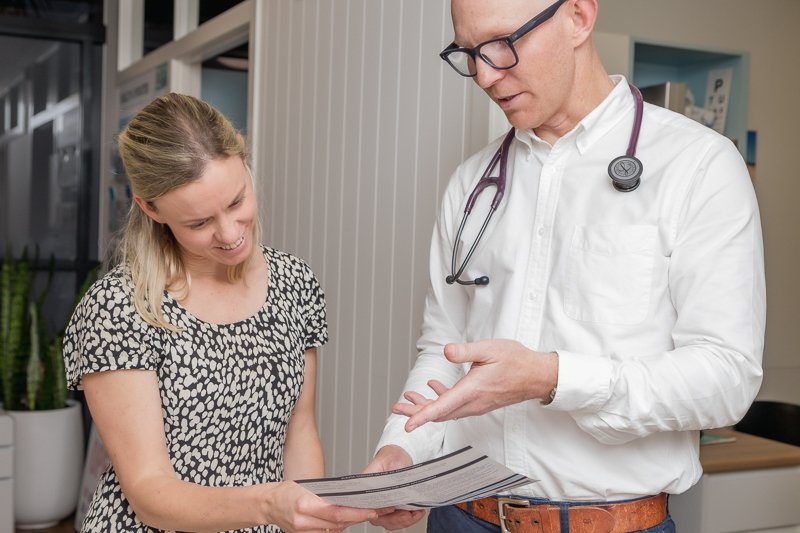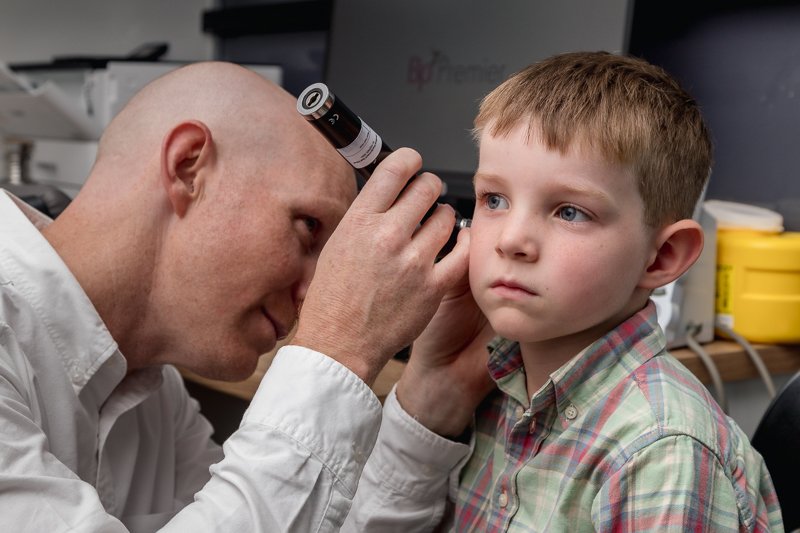Did you know that October is Breast Cancer Awareness Month?
Breast cancer is a type of disease where cells in the breast grow abnormally and uncontrollably, leading to a tumour.
It’s estimated that 20,568 women and 173 men in Australia will be diagnosed with breast cancer in 2022. This is approximately 56 people every day. This makes breast cancer one of the most common cancers in women in Australia.
Breast cancer occurs in both men and women. Anybody can potentially get breast cancer, and it’s important to be aware of the signs and symptoms so that you can be prepared and identify any concerns early.
Causes of breast cancer
It’s important to be aware of the potential risk factors for breast cancer so that you can be vigilant if you are at an increased risk. While we do not know the exact cause of breast cancer, several risk factors may increase your risk of developing breast cancer. These include:
– A family history of breast cancer. Many people develop breast cancer without a family history, but having one or more close relatives who have been diagnosed with breast cancer could increase your risk.
– Sex. Women are more likely to develop breast cancer.
– Age. The risk of developing breast cancer increases with age, and it is more common in people over 50.
– Being overweight or obese
– Regular alcohol consumption
– Smoking
– Use of hormone replacement therapy
– A personal history of breast cancer
– Genetic mutations that increase your risk for breast cancer in the genes BRCA2, BRCA1, and CHEK2.
– A history of other breast conditions, including benign growths
– Low physical activity
– Exposure to radiation
– Density of breast tissue. Dense breasts may double your risk of breast cancer and make it harder to detect. Learn more here.
The signs and symptoms of breast cancer
Doctors want to catch breast cancer while it is still in the early stages, when it is easiest to treat. Catching breast cancer early not only provides the best chances for successful treatment but improves quality of life and survival outcomes.
What can you do to detect breast cancer early? An important step you can take is to be aware of the signs and symptoms, and keep an eye out for them. However, it’s important to note that some people have no symptoms in the early stages of breast cancer.
Signs and symptoms include:
– A lump or thickening in the breast tissue
– Dimpling or unevenness on the skin of the breast
– Changes to the nipples, such as sores or changes in shape
– Unusual discharge from the nipple
– Change in size and shape of the breast
– Unusual pain that occurs outside of the menstrual cycle
– Swelling
– Discomfort
– Redness
– A change in the skin, such as itchiness, scaliness or a rash
Men and breast cancer
While they are at a lower risk of breast cancer than women, male breast cancer can still occur. Men still have breast tissue in their chests, and should be aware of the signs and symptoms of breast cancer. Learn more about male breast cancer here.
How is breast cancer diagnosed?
Several tests may be used to detect breast cancer. One of the most common is called a mammogram. A mammogram is an X-ray of breast tissue that can detect small changes in the breast and identify breast cancer early, when it is still too small to feel.
A mammogram is often used as a screening test, meaning that you may have a mammogram to check for breast cancer even if you have no symptoms. Speak with your doctor about when you may need to get a mammogram to screen for breast cancer.
In Australia, women aged 50-74 are entitled to a free mammogram every two years with BreastScreen Australia.
Other diagnostic tests include:
– A biopsy
– An ultrasound
– A CT scan
– An MRI scan
A clinical exam with your GP is also required with these processes.
Treatments
Typically, treatment for early breast cancer is surgery to remove the tissue. There are various types of surgery that may be used, depending on the size and location of the cancer. Other types of treatment include:
– Radiation therapy
– Hormone therapy
– Chemotherapy
– Targeted therapy
Before deciding on a treatment plan, a doctor will analyse your age, health and preferences as well as analyse the cancer. Each person will have a unique treatment plan. A multi-disciplinary approach is usually taken with specialist advice in most cases.
Peregian Family Medical Centre
GPs are often frontline professionals who assist patients to identify and test for breast cancer. Over half of all breast cancers are identified by patients or their doctors. If you have any concerns about how to screen for and prevent breast cancer, you can ask one of our experienced GPs.
If you have any signs or symptoms of breast cancer we strongly encourage you to book an appointment with your doctor as soon as possible to discuss it. At Peregian Family Medical Centre we are passionate about women’s health and are able to provide screening services and referrals for further testing if needed.
Call us on 5471 2100 or book now
All information is general in nature and is not intended to be a substitute for professional medical advice. Peregian Family Medical Centre can consult with you to confirm if this treatment is right for you.






